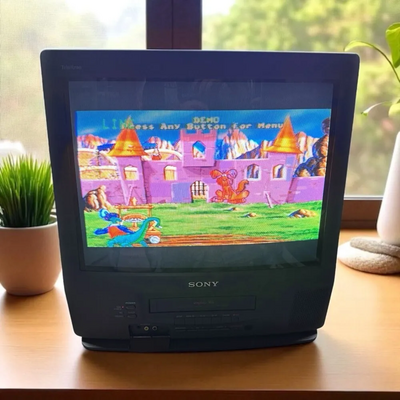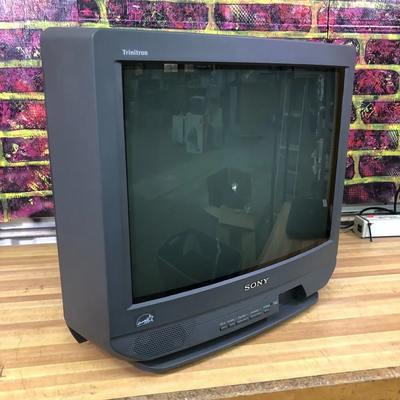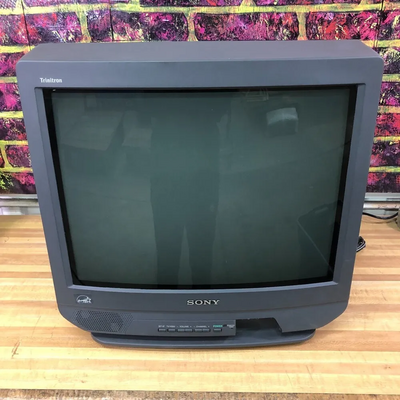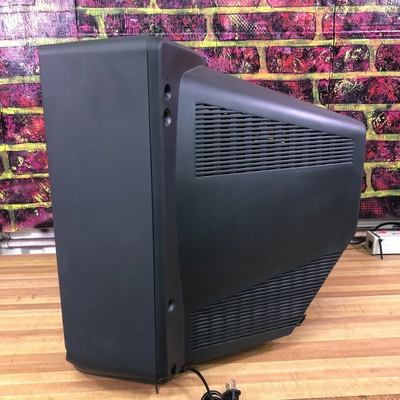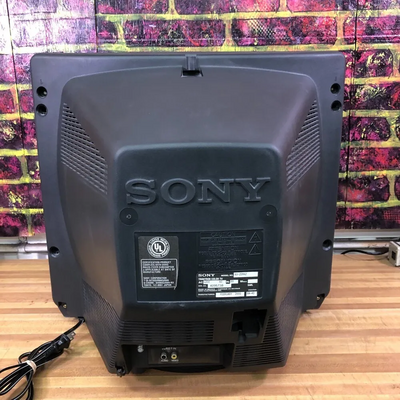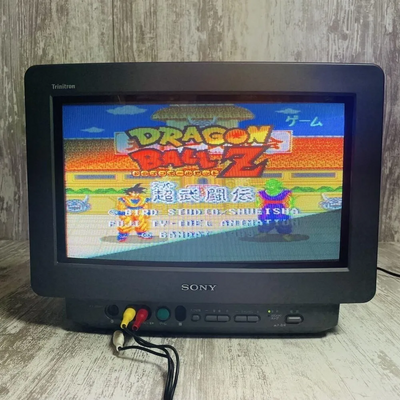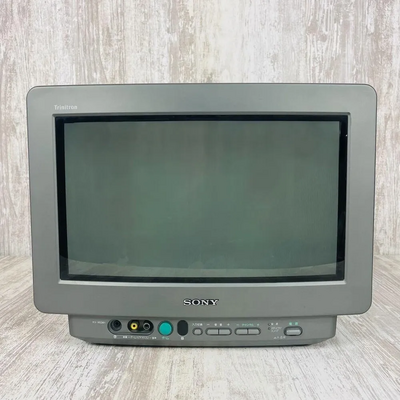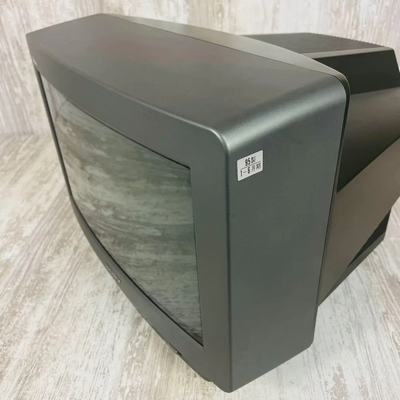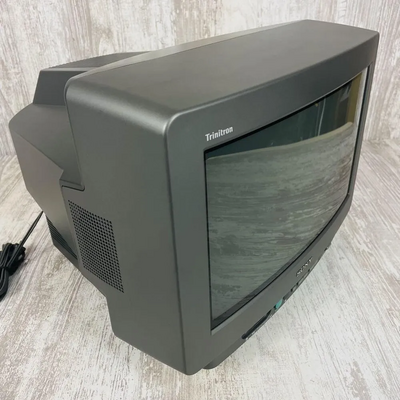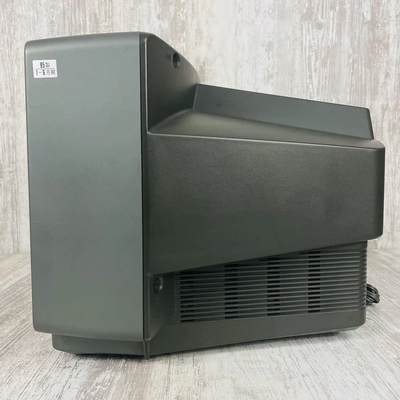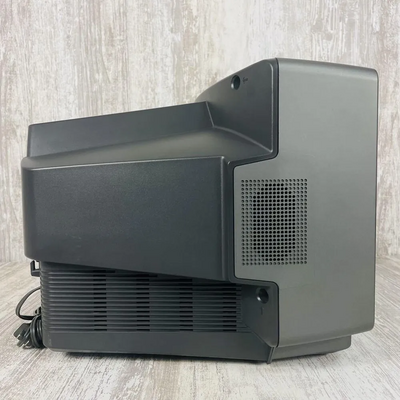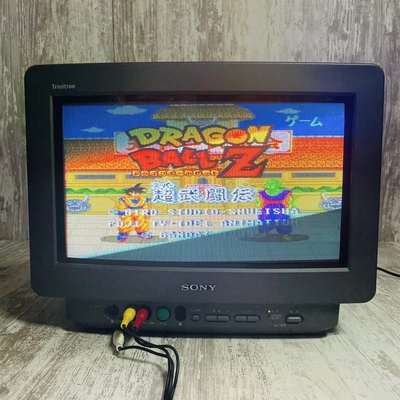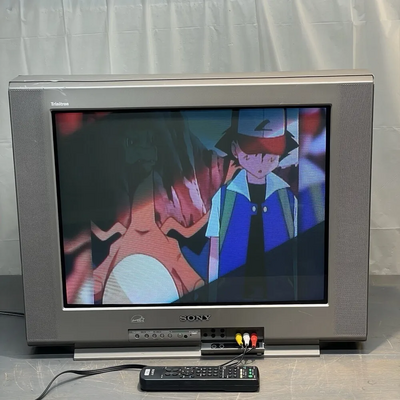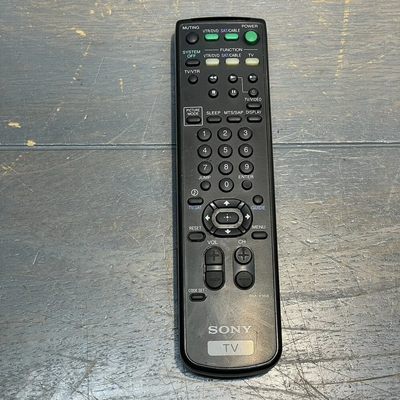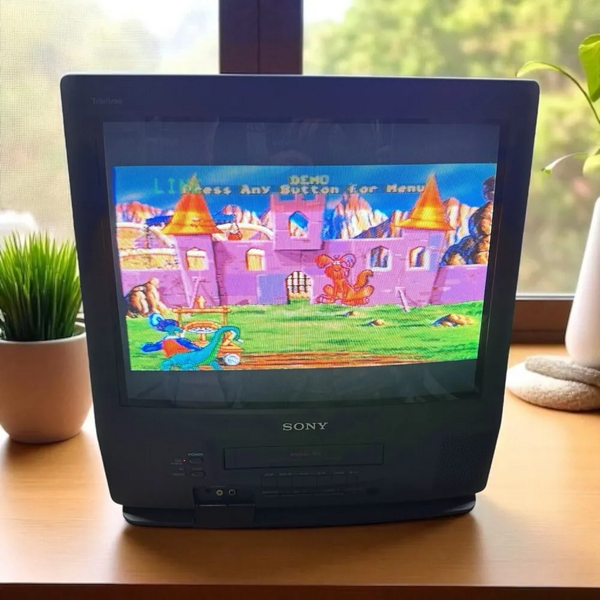
Sony Trinitron
| Brand | Sony 1968 |
| Model | Trinitron |
| Released Year | 1968 |
| Type | TV |
| Screen Size | Varies (typically 14 to 40 inches) |
| Resolution | Standard NTSC/PAL resolution |
| Refresh Rate | Typically 60Hz |
| Display Technology | Aperture Grille CRT |
| Status | Discontinued |
Quick view
Overview
The Sony Trinitron is a line of CRT televisions and monitors first introduced in 1968, distinguished by its innovative aperture grille display technology. Unlike conventional shadow mask CRTs, the Trinitron uses a single electron gun and vertical aperture grille, which enhances brightness and color fidelity. Its cathode ray tube was designed for improved image sharpness and reduced geometric distortion, delivering superior picture clarity for its era. The Trinitron design employed a unique internal single-gun assembly allowing more precise electron beam targeting of phosphor stripes. It features a glass screen with a vertical wire grille that significantly improved light transmission efficiency compared to mesh shadows. The technology set a standard for color reproduction and longevity that influenced TV manufacturing for decades.
Specifications
| Smart TV Features | Not Supported |
| Display Technology | Aperture Grille CRT |
| Screen Size | Varies (typically 14 to 40 inches) |
| Refresh Rate | Typically 60Hz |
| Maximum Resolution | 480i |
| Color |
|
| Model |
|
| Features |
|
| Year Manufactured | 2003 |
| Audio/Video Inputs |
|
| Type | CRT Television |
| Resolution | Standard NTSC/PAL resolution |
| Aspect Ratio | 4:3 (most models) |
| Color System | NTSC, PAL, SECAM (depending on region) |
| Inputs | RF, Composite Video, S-Video (varies by model) |
| Power Consumption | Approximately 100-200 watts depending on size |
| Dimensions | Depends on model size, generally bulky CRT form factor |
| Weight | Range from 10 to 40 kg depending on screen size |
| Discontinued | Yes (mid-2000s) |
| Special Features | Aperture grille for improved brightness and color fidelity |
| MPN |
|
| UPC | Does not apply |
Images
Key Advantages
The Trinitron's aperture grille technology provides brighter and more vivid colors than traditional CRTs. Its single electron gun and continuous vertical grille design reduce screen flicker and enhance image sharpness. Sony Trinitron TVs are highly regarded for their stable convergence and minimal color bleeding. The solid-state electron gun design increases picture accuracy and reliability over long-term use. These TVs typically deliver excellent contrast ratios for rich blacks and dynamic images. Additionally, the distinctive vertical wire grille reduces visible screen reflections enhancing viewing comfort.
Limitations
Being a CRT-based technology, the Trinitron TVs are bulky and heavy compared to modern flat-panel displays. The vertical aperture grille wires can sometimes produce faint visible lines on the screen which may distract some viewers. They consume significantly more power than current LED or OLED TVs. Resolution and screen size are limited by CRT technology constraints, providing lower pixel density than modern digital displays. Maintenance is more complex due to older components prone to aging and requiring careful calibration. Availability of replacement parts and accessories for Trinitron units has diminished since production ceased.
FAQ
What is Sony Trinitron technology?
Sony Trinitron technology uses a unique aperture grille CRT design that improves brightness, color accuracy, and sharpness compared to typical shadow mask CRTs.
When was the Sony Trinitron first released?
The Sony Trinitron was first introduced in 1968 and became one of the most popular CRT TV technologies.
What are the advantages of the Trinitron aperture grille?
The aperture grille offers brighter images, improved color consistency, reduced flicker, and less visible distortion.
Are Sony Trinitron TVs still produced?
No, Sony discontinued Trinitron production in the mid-2000s as flat-panel LCD and plasma TVs became mainstream.
Can I still find replacement parts for Sony Trinitron TVs?
Replacement parts exist but are relatively rare and may be expensive due to the discontinued status and older technology.
What sizes were available with Sony Trinitron TVs?
Trinitron TVs were produced in various sizes ranging from small computer monitors to large-screen televisions, typically up to around 40 inches.
How do Trinitron TVs compare to modern flat-panel displays?
While Trinitron TVs offer excellent color and contrast for CRT technology, modern flat-panel displays provide higher resolution, lighter weight, lower power consumption, and slimmer form factors.
Disclaimer
The content on is provided for general informational purposes only. We do not guarantee the accuracy, completeness, or reliability of any information, specifications, or visuals presented on the site.
is not responsible for any content, images, or data uploaded or shared by users. Users are solely responsible for the content they submit.
We may include links to third-party websites for convenience. We do not endorse or take responsibility for the content or policies of any external sites.
Use of the site is at your own risk. Always verify critical information independently before making decisions based on content from this website.

